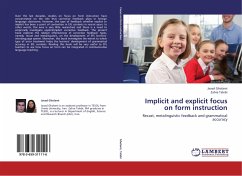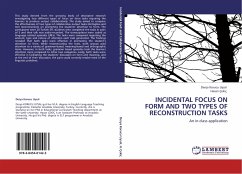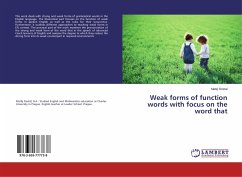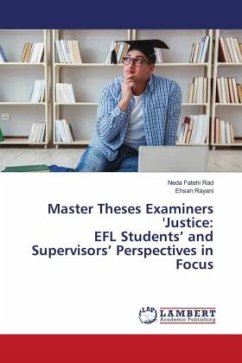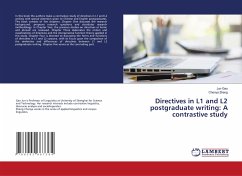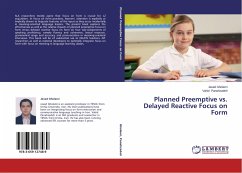
Planned Preemptive vs. Delayed Reactive Focus on Form
Versandkostenfrei!
Versandfertig in 6-10 Tagen
47,99 €
inkl. MwSt.

PAYBACK Punkte
24 °P sammeln!
SLA researchers mostly agree that focus on form is crucial for L2 acquisition. In focus on form practices, learners' attention is explicitly or implicitly drawn to linguistic features of the input as they occur incidentally in meaning-oriented language lessons. The present book explores the effectiveness as well as the relative impacts of planned preemptive focus on form versus delayed reactive focus on form on four sub-components of speaking proficiency, namely fluency and coherence, lexical resource, grammatical range and accuracy, and pronunciation in meaning-oriented interviews. This book ...
SLA researchers mostly agree that focus on form is crucial for L2 acquisition. In focus on form practices, learners' attention is explicitly or implicitly drawn to linguistic features of the input as they occur incidentally in meaning-oriented language lessons. The present book explores the effectiveness as well as the relative impacts of planned preemptive focus on form versus delayed reactive focus on form on four sub-components of speaking proficiency, namely fluency and coherence, lexical resource, grammatical range and accuracy, and pronunciation in meaning-oriented interviews. This book will be of substantial use to ESL/EFL teachers, ELT researchers as well as material developers to optimally integrate focus on form with focus on meaning in language learning classes.







